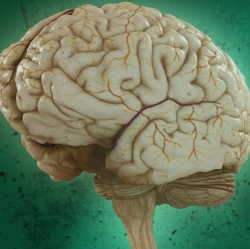
Binge eating, obsessive compulsive disorder, and even methamphetamine addiction may all be influenced by how the brain functions, namely how much grey matter is found in "goal-oriented" parts of the brain. The study details how people who tend to make compulsory decisions all happen to exhibit the same brain patterns.
"Seemingly diverse choices – drug taking, eating quickly despite weight gain, and compulsive cleaning or checking – have an underlying common thread," principle researcher Valerie Voon said in a recent statement. "Rather that a person making a choice based on what they think will happen, their choice is automatic or habitual."
Voon explained that habitual habits can all have the same underlying casual factors, despite how differently they may be presented in everyday life. According to the study, one such factor Voon’s team quickly discovered was low gray matter volumes in the orbitofrontal cortex and striatum of the brain – regions that keep a mind goal and reward oriented.
This was determined after Voon and his team compared nearly 150 people with compulsion disorders to a group of healthy participants of the same age and gender.
